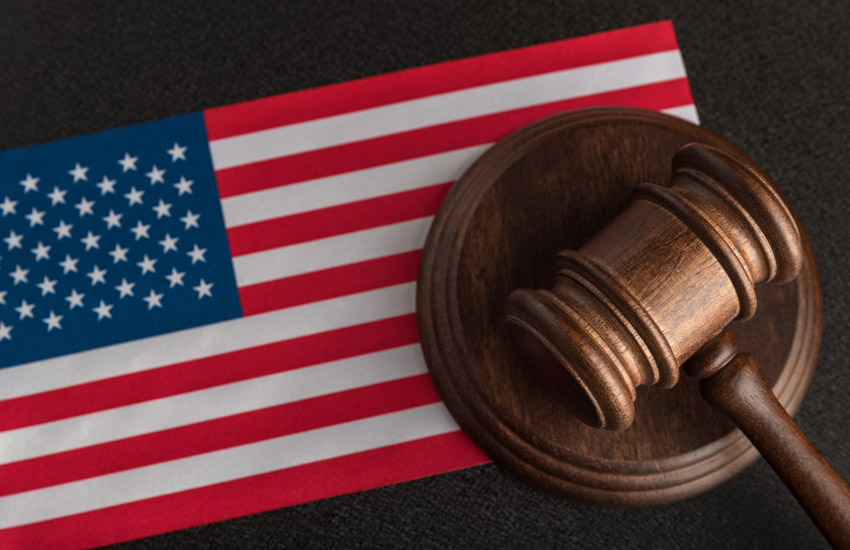Today the Vice-Chair of the Federal Reserve, Randal Quarles and the new Acting Comptroller of the Currency, Michael Hsu, acknowledged that multiple agencies are coordinating regulatory approaches to cryptocurrencies. At the very least, those agencies are the Federal Reserve, the Office of the Comptroller of the Currency (OCC) and the FDIC.
Responding to a question about cryptocurrencies from Representative Tom Emmer during a Hearing at the House Committee of Financial Services, Hsu said, “This is a really really important issue. I think the rise of crypto has garnered a lot of attention.”
He continued, “Prior to this meeting, Vice Chair Quarles (Fed), Chair McWilliams (FDIC) and I had talked about potentially putting together an interagency policy sprint team just on crypto because of exactly the concerns you’ve described.” All three regulators participated in the House hearing.
Later in the hearing, Representative Ted Budd asked Fed Vice Chair Quarles about the definition of a cryptocurrency.
“We are engaged with the other agencies in a joint effort to think through some of the crypto definitions and the application of regulations in crypto areas. I’m sure that will be part of it,” said Quarles.
He added, “We’re focused very intently on these crypto issues with the aim of having answers, joint views, fairly quickly. I’m sure that will be achievable.”
Earlier this month, Treasury Secretary Janet Yellen dropped hints that there might be a more coordinated regulatory approach. And Congressman Patrick McHenry introduced a bill for the SEC and the CFTC to create a joint working group on digital assets. So far, the Bill has been passed by the House.
This activity has happened since the new SEC Chair Gary Gensler was confirmed. Not only would he be considered one of the most knowledgeable on the topic within the administration, but he also took charge of CFTC derivatives regulations after the last financial crisis.
OCC reviewing bank custody of cryptocurrencies
Earlier in the hearing in his prepared statement, the OCC’s Hsu expressed frustration about the lack of a coordinated approach amongst different agencies. He pointed to a previous fragmented agency by agency approach to new instruments like Credit Default Swaps in the late 1990s and early 2000s. These instruments are widely blamed for causing the financial crisis.
“The key strategic question which the regulatory community must answer collectively is: Where should we set the regulatory perimeter? To my knowledge, there is not a shared understanding of the answer to that question and no overarching strategy to achieve it,” said Hsu.
Under previous acting OCC head Brian Brooks, the framework for chartering national banks and trust companies was reviewed, and an interpretive letter said banks could custody cryptocurrencies. “I have asked staff to review these actions,” said Hsu. We note that he did not refer to two other Brooks interpretive letters allowing banks to hold stablecoin reserves and participate in stablecoin networks. Reviewing those might scupper Diem’s latest plans.
Representative Ted Budd noted that national trust charters had been granted to three cryptocurrency custody firms Anchorage, Protego and Paxos. He asked about the timetable for other outstanding applications.
“I don’t know the timetable right now. It’s under review. It’s under discussion,” said Hsu, noting that he was only ten days into his new role. “We’re not going to drag it out, that I can say.”
Blockchain company Figure Technologies has applied for a national bank charter which has caused some pushback from incumbents. Budd seemed supportive of Figure and asked how its application is progressing. The company processes mortgages on a blockchain and securitizes them. It’s also launching Figure Pay, a stablecoin based payments application that will provide point-of-sale credit to the underbanked.
“That application is definitely part of the set of applications that are under review,” said the OCC’s Hsu. “We’ve had some preliminary discussions about it. I need to learn more before signaling where that’s going. But that is very much under review.”
Then Budd asked Randal Quarles about payment access to trust charter banks that don’t take deposits or state-chartered banks that originate in the crypto world. We note that Figure might be classed as the latter.
“We do grant access to non depositary trust companies. We recently released a set of principles to govern account access for all institutions as a recognition that there is an increasing variety of institutions that is potentially interested in account access,” said Quarles.
“We haven’t made a decision about account access until we develop new frameworks.”
During the same hearing, Todd Harper, Chairman of the National Credit Union Administration (NCUA), said the NCUA plans to issue a request for information about digital assets, not dissimilar to the FDIC questionnaire published earlier this week.






